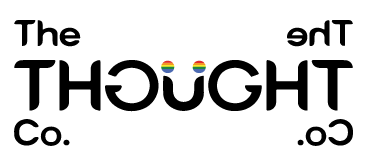The idea of freedom and endless possibilities sounds … dreamy, right?
Contrary to what we might think, having more options doesn't necessarily lead to greater happiness or satisfaction. Research by psychologist Barry Schwartz suggests that too much choice can actually lead to less satisfaction with the final decision. This is because with so many options, it becomes harder to feel confident that we've made the best choice possible.
The paradox of freedom is complex, requiring a balancing act between having the power to make choices and facing the consequences of those choices.
An example of this paradox is when people are released from prison and deliberately return. It can also look like believing certain narratives that limit our perception of the world so that it restricts our available options. Narratives like leaving a relationship without commitment, avoiding job application, or downplaying personal desires can restrict our options.
Unbounded freedom comes with its own set of struggles and uncertainty.
Choice Paralysis aka Analysis Paralysis aka Decision Overload is the state of being unable to make a choice due to the overwhelming number of options available.
What this means in a nutshell - Our brains, as magnificent as they are, have a limited capacity to process information effectively. We get overloaded when we have too many choices, each with its own set of pros and cons. Leading to exhaustion of having to objectively evaluate each option, thus causing a reluctance to make any choice in the hopes that they magically don’t exist.
There are two major drivers for Choice Paralysis:
- The Fear of Regret: This leads to worrying about making the wrong decision or a mistake. We get so caught up in the fear of missing out on another possibility or choice. We end up living in the future and not in the present. It also makes us more attuned to negative outcomes of each choice.
- Perfectionism and Unrealistic expectations: The pressure to make the absolute "best" decision. However, making the ‘best’ decision is a myth. There is no perfect decision. Focus on "good enough" rather than "perfect": It's important to remember that there is rarely a single "perfect" choice. What we can aim for is to make a decision that is good enough, rather than getting hung up on finding the absolute best option. The best option, good enough choice will also be dependent on the aspect of time and how we exercise the how much time we give ourselves. We must keep in mind that we aren’t rushed into making any decision however, with time things will keep changing and with that possibilities change. This could lead to an even more overload on brains to process and reprocess new information along with old information continuously … leading to mental fumes and cognitive burning out. Hence, defining a time period for yourself to make a ‘good enough’ decision is also important!
All decisions come with both known and unknown cons and consequences. The only thing you can do is perfectly own your decision and keep making choices that align with who you are.
But how do you get to know your inner decision maker?
The known limitations of confinement can feel safer than the uncertain possibilities of freedom. Too much of freedom and possibility leaves us feeling overwhelmed, paralysed by the pressure, procrastination; surrendering control and choosing a direction randomly; or even restricting ourselves, returning to the familiar but less desirable situation we left behind.
However, we hate feeling too restricted and coerced hence we might need options to not feel like we’re in a series of ultimatums. Choice overload can get us caught up in our thoughts, distance us from our emotions. Where do we strike a balance between thought oriented and emotional decisions then?
Some decisions present a ‘lose-lose’ situation. If we pick a solely thought-oriented decision it might be too vague and impersonal to us. And if we pick solely emotionally oriented we run the risk of being too reactive and impulsive. Our emotions play a significant role in the decision making process especially when balanced out with the logical thoughtful perspective. What if we made decisions that involved introspection, sitting with our feelings, and using them to make choices aligned with our best interests rather than focusing solely on what's perceived as the best decision?
When making choices for oneself, it is important to remember that while uncertainty can be daunting, positive surprises could emerge from the unknown. Let’s try to let go of the desire to fit a perfect, justifiable, and logical explanation for how our choices fit into a grand plan of life. It’s normal not to have the ‘best’ answers immediately — in fact, this uncertainty is essential for being open to life’s adventures!
When making choices, remember that the present dictates the future, not the other way around.

